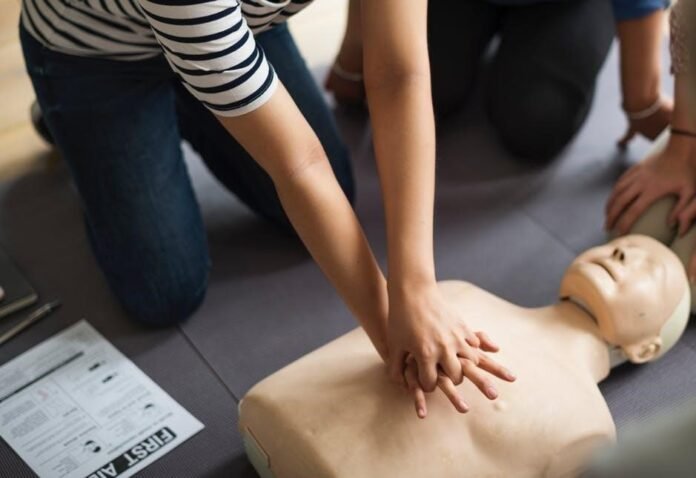Cardiopulmonary resuscitation is useful in many jobs, especially in healthcare, education, and safety. Many employers require this training to ensure workers can act in emergencies.
Choosing the right certification helps meet job needs and improve career options. Some courses are basic, while others are for professional roles. Knowing the difference avoids wasted time and effort.
The right choice can also open more opportunities. Use the points below to choose the right CPR certification.
Understand the Certification Levels
There are different types of CPR certification, and each one has its own purpose. Some teach only the basic skills needed for common situations, while others prepare people for emergencies in medical settings.
If the wrong level is chosen, it may not be valid for the job you want. Reading job descriptions or asking an employer can make it clear which level is best. This way, the time and money spent on training will not be wasted.
Check for Industry Recognition
A CPR certificate is only useful if it is accepted in the field where it will be used. Certificates from trusted and accredited providers are more likely to be recognized by employers. If a certificate is not accepted, it can cause delays in starting work or create extra costs for more training.
Asking an employer or industry group which certifications they accept can prevent these problems. Choosing one that is widely recognized also makes it easier to move between jobs. It can give more freedom when building a career.
Evaluate the Training Format
CPR training can be taken in person, online, or with a mix of both methods. The best choice depends on how you learn and how much time you have. In-person classes allow for practice and direct feedback, which can build confidence in using the skills.
Online courses can be more flexible, but they may not give as much hands-on practice. A blended format can offer both the convenience of online learning and the benefits of in-person training. Thinking about your schedule and learning style can help you decide which option works best.
Review Course Content and Skills Covered
Not all CPR courses teach the same skills. Some focus only on adult CPR, while others teach CPR for children and infants. Certain programs include first aid or automated defibrillator use, which can be important for some jobs.
Looking at the course outline before enrolling helps make sure it covers what you need. Resources like https://cprcertificationnow.com/collections/cpr-and-first-aid-certifications can help compare what each course includes. Choosing a program with the right mix of skills gives better preparation for real situations.
Consider Renewal and Recertification Requirements
CPR certification does not last forever, and most need to be renewed every one or two years. Planning for this renewal helps avoid losing the certification when it is needed most. Employers often require proof that the training is current, and an expired certificate may not be accepted.
Renewal courses give a chance to review skills and learn new updates in CPR. Knowing when the certification will expire makes it easier to stay on track. This helps ensure you are always ready to respond in an emergency.
Read More: Avoid These 7 Common Mistakes When Meeting PMP Certification Requirements
Choose the Right CPR Certification for Career Advancement
Choosing the right CPR certification takes careful thought. The course should match the job you have or want and meet industry standards. Looking at the level, recognition, format, content, and renewal rules will make the decision easier.
Thinking about the value as well as the cost is important. With the right certification, skills stay useful, and career options can grow.
Should you wish to read more, visit our blog page. We’ve got more!



